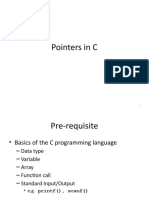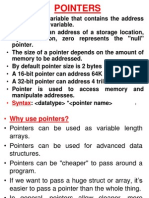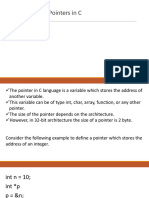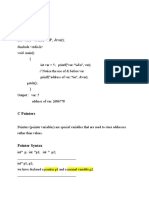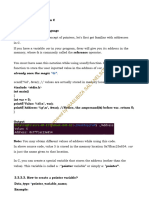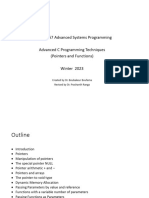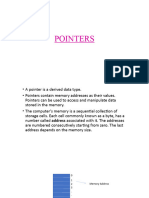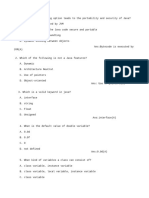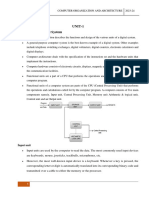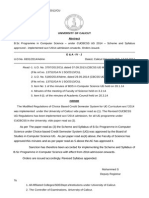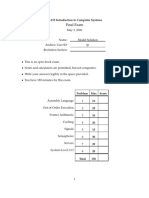0% found this document useful (0 votes)
12 views4 pagesUnit 8 Pointers
Pointers in C are variables that hold memory addresses, crucial for efficient memory management and data manipulation. They can be declared, initialized, and dereferenced to access or modify values in memory, and can also be used in pointer arithmetic and as function parameters. The document provides examples illustrating the use of pointers with basic data types, arrays, and pointer-to-pointer scenarios.
Uploaded by
njnim55Copyright
© © All Rights Reserved
We take content rights seriously. If you suspect this is your content, claim it here.
Available Formats
Download as PDF, TXT or read online on Scribd
0% found this document useful (0 votes)
12 views4 pagesUnit 8 Pointers
Pointers in C are variables that hold memory addresses, crucial for efficient memory management and data manipulation. They can be declared, initialized, and dereferenced to access or modify values in memory, and can also be used in pointer arithmetic and as function parameters. The document provides examples illustrating the use of pointers with basic data types, arrays, and pointer-to-pointer scenarios.
Uploaded by
njnim55Copyright
© © All Rights Reserved
We take content rights seriously. If you suspect this is your content, claim it here.
Available Formats
Download as PDF, TXT or read online on Scribd
/ 4








